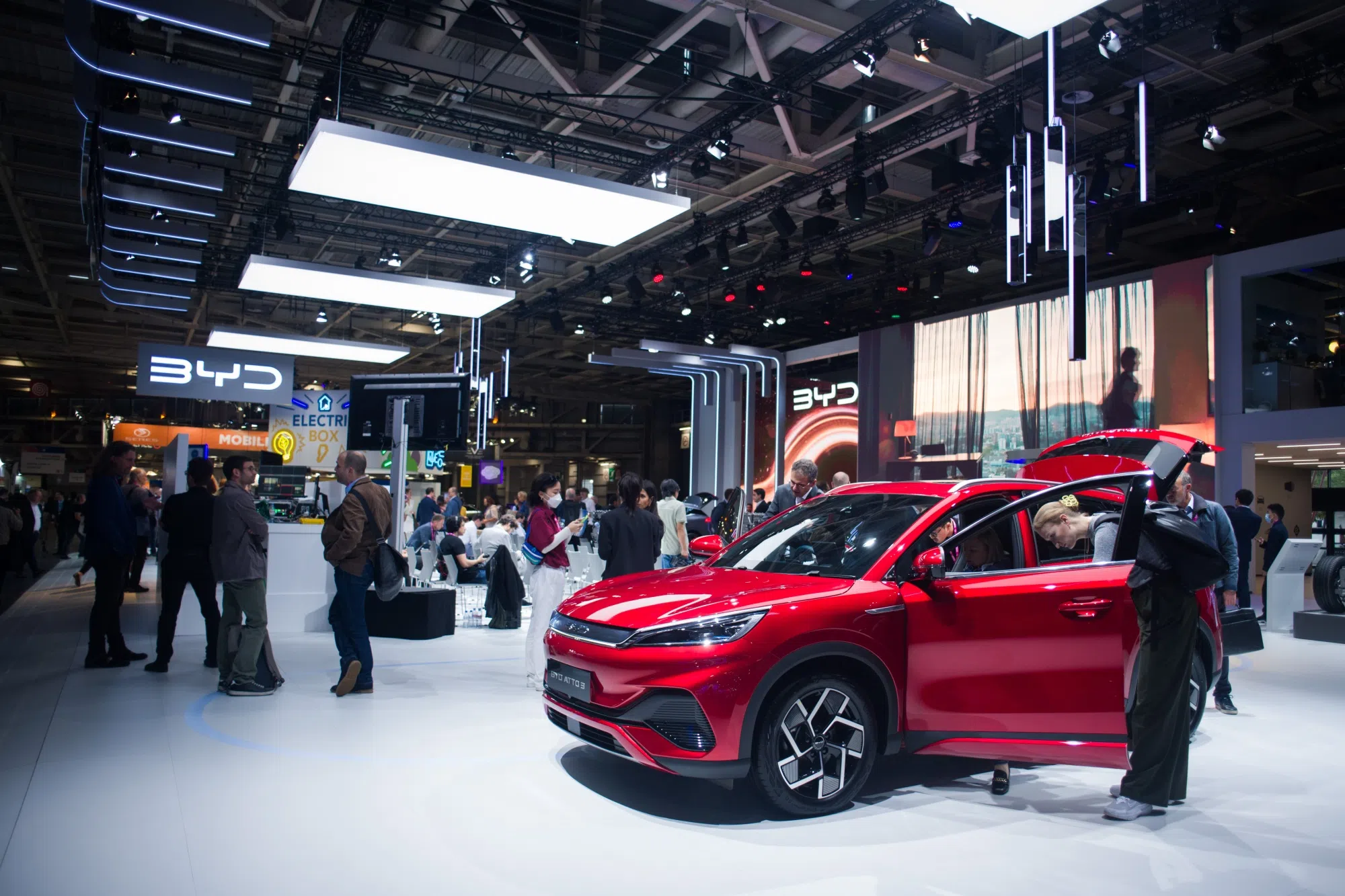FIVE years of rapid European growth for Chinese electric-car manufacturers ground to a halt in 2024, as trade barriers added to the challenge of building up sales in a stagnant market.
Brands led by Saic Motor’s MG registered 3.5 per cent fewer electric vehicles (EVs) in the region for all of 2024, according to data from automotive researcher Dataforce, marking their first annual drop since entering the market. In all, carmakers that also include BYD and Xpeng captured about an 8.5 per cent share.
December marked the second month of added European Union tariffs imposed after the bloc found that state aid provided an unfair advantage for all Chinese-made EVs.
Across Europe, Chinese carmakers held onto 8.2 per cent of the EV market in December – a slight bump up from November but still below the average. The data covers EU countries, the UK and European Free Trade Association members such as Norway.
The added EU levies, which bring duties to over 45 per cent in the case of MG, began to have an impact in the marketplace earlier in the year.
Originally scheduled to take effect in early July, the tariffs were subject to heated negotiations and multiple changes before implementation. They remain a source of contention, even among non-Chinese carmakers that were affected, with Tesla and BMW filing lawsuits to stop them.
BT in your inbox
Start and end each day with the latest news stories and analyses delivered straight to your inbox.
MG, the former British brand whose parent Saic is state controlled, has meanwhile lost its European sales lead among Chinese brands, as volumes fell off sharply after a June inventory push to beat the then-deadline.
BYD has kept up its steady push into the region despite being subject to a 17 per cent add-on to the standard 10 per cent EU import duty. The company has expanded into Greece and partnered with French car-leasing firm Ayvens to bolster its position with corporate customers.
The manufacturer is pushing ahead with plans to build a factory in Hungary to help it sidestep the new tariffs, and is also planning a US$1 billion plant in Turkey, which has a customs-union agreement with the EU that would make BYD cars built there exempt from levies.
Other companies are also pressing ahead. Upstart Xpeng has firmed up its spot in third behind MG and BYD with a push into EV-friendly countries including Denmark, Norway and the Netherlands, according to Dataforce analyst Julian Litzinger.
Despite their recent setbacks, Chinese EV competitors remain an “existential threat” to European carmakers, automotive researcher Jato Dynamics said in a January report.
While trade disputes have held back their progress in Europe and the US, EVs are rapidly taking over the Chinese automotive market, and manufacturers from the country are gaining ground with inexpensive models in emerging markets.
European consumers have not seen the same price benefits. BYD’s Atto 3, which starts at 37,990 euros (S$53,432) in Germany before subsidies, sells for 44 per cent less in China, according to Jato. A similar price differential exists on the £26,995 (S$45,352) MG4, another popular small SUV, from the UK to China.
Still, the Atto 3 remains much less expensive than the slightly larger Volkswagen AG ID.4, costing €48,635 in Germany.
Indeed, the price advantage is one reason BYD, for example, can shrug off the added EU fees and continue to expand. Western carmakers such as BMW and Tesla that are also subject to the EU tariffs have less flexibility to absorb the extra costs.
In its objection this month, BMW said the added fees will not strengthen European manufacturers’ competitiveness, will slow the decarbonisation of the auto industry, and “harm the business model of globally active companies”.
The German company said it’s still hoping for a negotiated agreement between Brussels and Beijing, adding that “it is important to avoid a trade conflict that only has losers in the end”. BLOOMBERG



